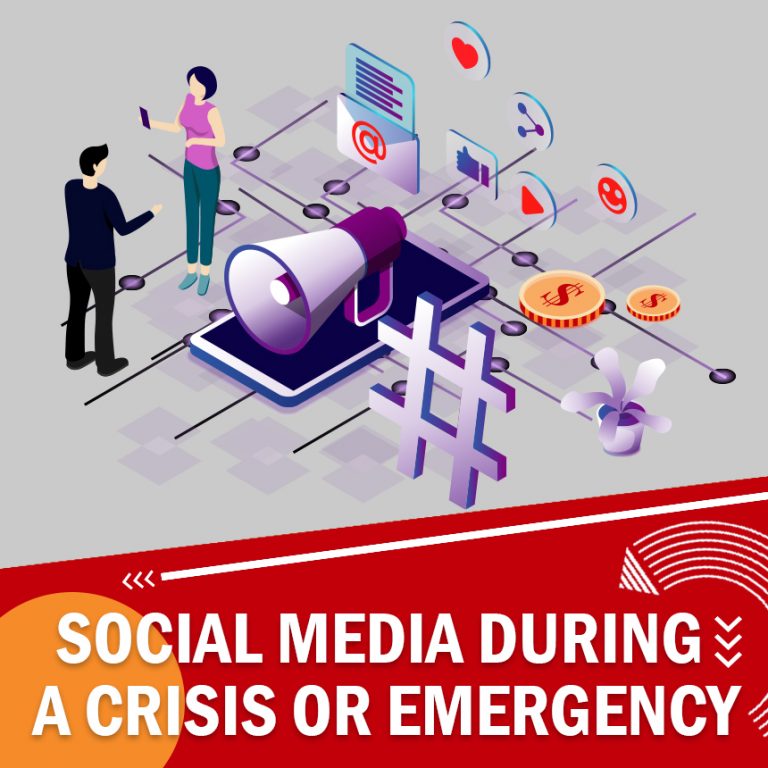
On a typical day, connecting with your audience on social media demands care, tact, and foresight. In the heart of such a major crisis like the COVID-19 pandemic, the pressure has increased. What should your brand speak when the facts and the future both remain doubtful? And how should you say it when the latest developments are occurring within every minute or hour?
Social media crisis communication for brands is just a straightforward question: how can you help?
In this post, we’re looking at best social media for crisis practices during a real-world emergency or crisis. That is plan and strategy for “difficult times” such as hurricanes, earthquakes, massacres, wildfires, pandemics, and economic collapse.
Seven tips for communicating on social media during a crisis or emergency
1. Review – and possibly pause – your upcoming social calendar
Context changes quickly in a crisis, and brands are right to question if it is a relevant thing to be saying in the middle of a pandemic. At best, you may appear tone-deaf; at worst, unsuitable messaging could threaten brand lives.
If you’re utilizing a social media scheduler, you’ll want to unschedule future posts. Have a belief that all the hard work that went into your entire post isn’t lost; it’s just postponed.
Related: Effective Virtual Team Building Activities For Remote Teams Part-1
2. Have a social media policy in place
We don’t have the power to foretell crises, but we can be ready for them. Particularly for larger teams, your business’s official social media strategy is your greatest asset in responding as swiftly and efficiently as possible. A great plan will provide a robust, but flexible, response process, as well as gather all the essential internal information you require to move forward.
It’s also a valuable document to have in the case that any of your team members are affected by the crisis and enforced to share responsibilities with non-team members.
3. Identify who’s on your “tiger” team
What’s a tiger team? A pack of ferocious experts that unite to operate on a particular problem or goal. In this case, amid an emergency or crisis, your current social team may reconfigure, or call in further firepower to control the extended pressure.
Identify the people who are adequately suited for these roles, and outline their responsibilities so that everyone can own their mission, and perform.
4. Ensure employees are aware of your organization’s position
Communications start at home, and yet your business moves forward, you would require your employees informed and onboard.
For example, if you’re advertising donations, relief efforts, or any other moves for the larger good, then proud employees can support you to spread the word through an employee advocacy plan. This is a great time to remind them of your business’s social media guidelines for employees(including any crisis specific measures).
5. Communicate with openness, honesty, and compassion
This topic is self-explanatory.
Compassion, honesty, and humanity will always help you win out. The brands that develop trust during tough times are the ones who are transparent about the problems they’re struggling with—or responsible for.
6. Cite only credible sources
Countering the spread of misinformation on social media has been a crucial concern for government, platforms, and brands these past few years. But in a crisis, bad information doesn’t solely damage reputations; it can be outright hazardous.
While social platforms themselves might execute broader protective policies through a crisis, it’s undoubtedly essential to have a fact-checking order in place before you share misleading claims with your audience.
7. Utilize social media monitoring and listening to stay informed
Your social media team might well have been the first people in your business to hear about the crisis, whether global or local. It’s just the nature of the job.
If your social listening plan is optimized, your team can continue to monitor audience emotion about your brand, as well as track what’s occurring with your competitors and industry at a broader picture.
Communicate with their social media audiences efficiently and tactfully during a crisis. Remember, the most critical question to ask yourself; How Social Media for Crisis help you? What can you achieve with crisis communication?
Related: 8 Tips for Effective Crisis Communications in the Workplace


